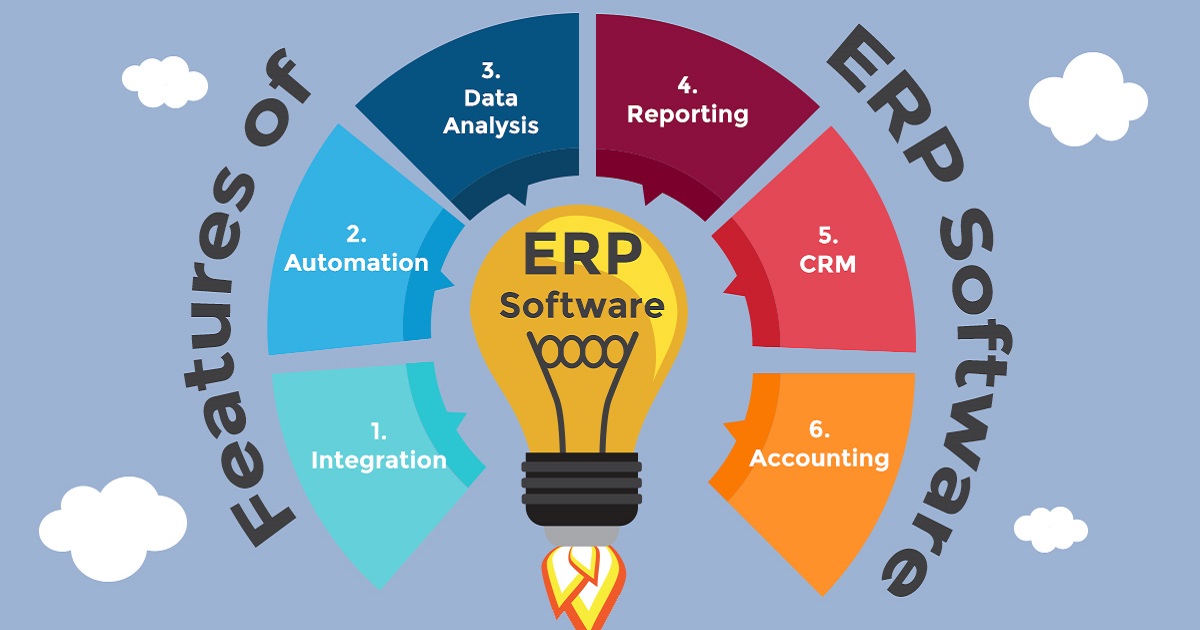Enterprise Resource Planning (ERP) software plays a pivotal role in streamlining business processes, enhancing productivity, and driving growth. In Riyadh, businesses are increasingly turning to ERP solutions to optimize their operations and gain a competitive edge in the market. This comprehensive guide explores the best ERP software solutions in Riyadh and provides essential insights for businesses looking to boost their productivity.
Page Contents
Understanding Your Business Needs
Before selecting the Best ERP Software in Riyadh solution, it is crucial to understand your business’s unique needs, challenges, and goals. Assessing current business processes, identifying pain points, and defining objectives for ERP implementation will guide you in selecting a solution that aligns with your business requirements.
Essential Elements of ERP Software
When evaluating ERP software options, consider key features such as integration capabilities, customization options, reporting and analytics tools, scalability, and a user-friendly interface. These features are essential for ensuring that the ERP solution meets your business needs and enables seamless operations.
Researching Available Options
Researching available ERP software options involves reviewing reputable vendors, comparing features and pricing plans, and reading customer reviews and testimonials. This research phase is crucial for identifying potential solutions that meet your business requirements and budget.
Demo and Trial Evaluations
Requesting demos from shortlisted vendors and testing software through trials or pilot programs allows you to experience the ERP solution firsthand and evaluate its suitability for your business needs. Soliciting feedback from end-users during this phase is essential for making informed decisions.
Vendor Selection and Negotiation
When selecting a vendor, consider factors such as reputation, customer support services, and the flexibility of pricing and contract terms. Negotiating with vendors can help you secure favorable terms and ensure a successful partnership for ERP implementation.
Implementation and Training
Planning for ERP implementation involves setting realistic timelines, allocating resources, and providing comprehensive training to staff to ensure a smooth transition to the new software. Effective implementation is crucial for maximizing the benefits of the ERP solution and achieving business objectives.
Monitoring and Optimization
Once the ERP software is implemented, it is essential to monitor its performance, gather feedback from users, and address any issues or concerns promptly. Continuous optimization ensures that the ERP solution remains aligned with evolving business needs and industry standards.
Case Studies
Explore real-world case studies of successful ERP software implementations in Riyadh to gain insights into best practices and lessons learned from other businesses’ experiences.
Conclusion
In conclusion, selecting the best ERP software solution in Riyadh is essential for businesses looking to boost their productivity and gain a competitive edge in the market. By following this comprehensive guide and leveraging essential insights and tips, businesses can make informed decisions and optimize their operations with the right ERP solution.
FAQs
Q1: What is ERP software, and how does it benefit businesses?
A: ERP software integrates various business processes and functions into a centralized system, enabling seamless communication and data sharing across departments. It benefits businesses by improving efficiency, reducing costs, and enhancing decision-making capabilities.
Q2: How do I know if my business needs ERP software?
A: If your business struggles with fragmented systems, manual processes, data silos, or difficulty accessing real-time information, investing in ERP software may be beneficial to streamline operations and improve productivity.
Q3: What factors should I consider when choosing ERP software for my business?
A: Key factors to consider include your business requirements, scalability, integration capabilities, user-friendliness, vendor reputation, support services, and pricing.
Q4: How long does it take to put ERP software into practice?
A: The implementation timeline varies depending on factors such as the complexity of your business processes, the size of your organization, and the chosen ERP solution. Implementation can take several months to a year on average.
Q5: What are the costs associated with ERP software?
A: The costs associated with ERP software include software licensing fees, implementation costs, training expenses, and ongoing maintenance and support fees. It is essential to consider these costs when budgeting for ERP implementation.

